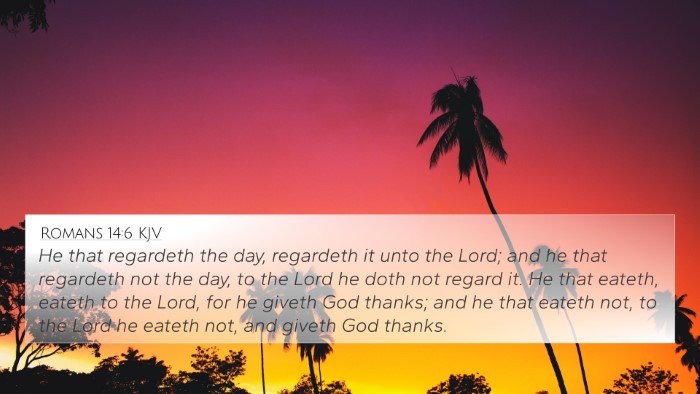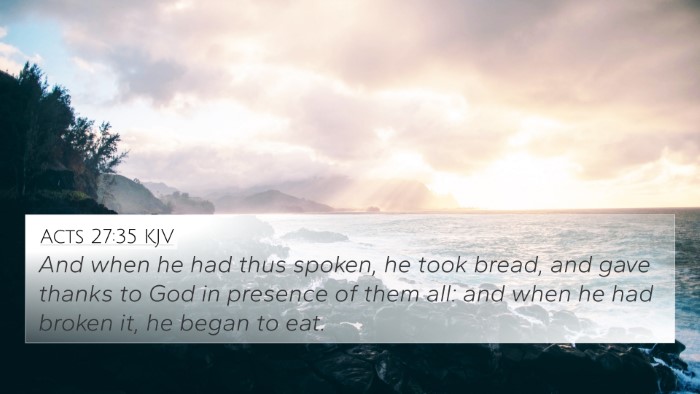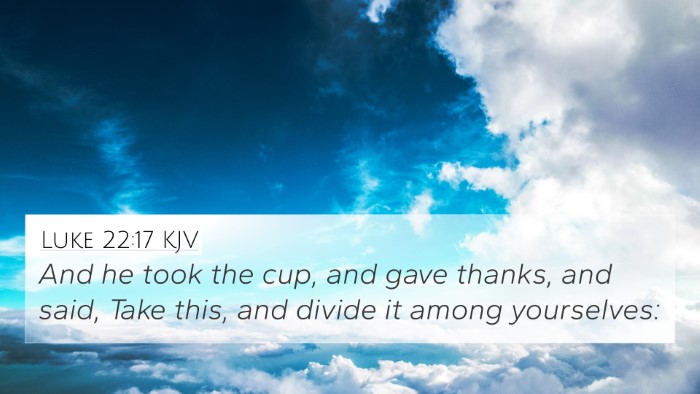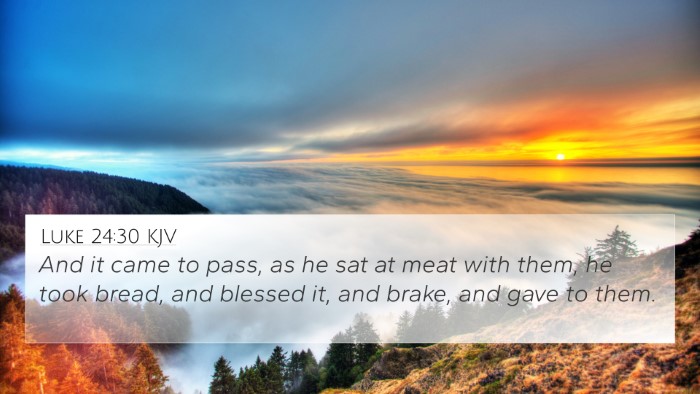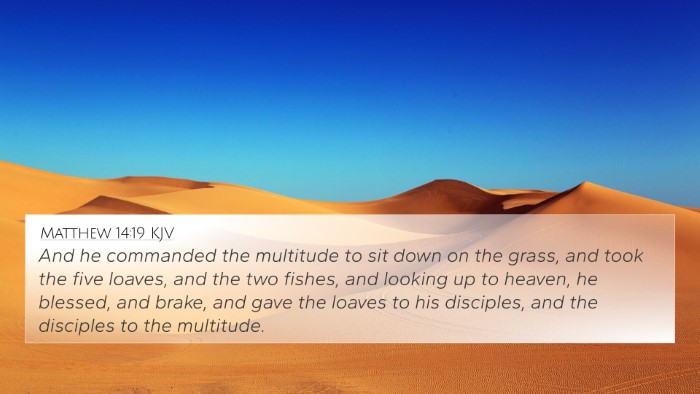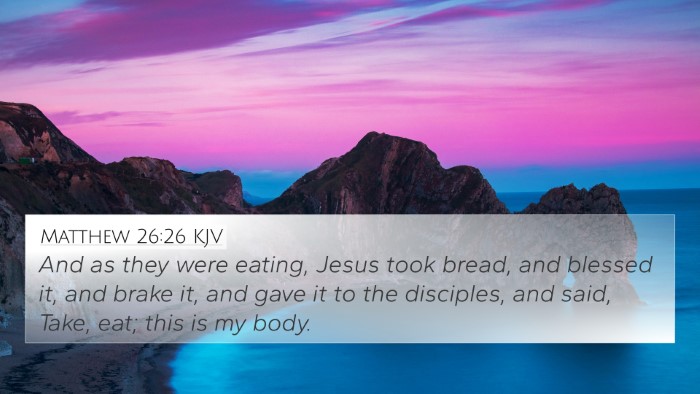Understanding Matthew 15:36
Matthew 15:36 reads: "And he took the seven loaves and the fishes, and gave thanks, and brake them, and gave to his disciples, and the disciples to the multitude." This verse recounts a significant miracle of Jesus, reflecting on the themes of provision, gratitude, and the role of his disciples in ministry.
Verse Meaning and Commentary
This verse is deeply symbolic and serves as a demonstration of Jesus’ miraculous powers and compassionate nature. In light of public domain commentaries, we can explore the meaning from various perspectives:
Matthew Henry’s Commentary
Matthew Henry emphasizes the importance of Christ's actions in this miracle. He notes that Jesus took the loaves and fishes, gave thanks, and then broke them. Thanksgiving is central to Christian life, highlighting gratitude for what God provides. Henry also points out that the miracle illustrates God's ability to supply our needs abundantly, even when resources seem limited.
Albert Barnes’ Commentary
Albert Barnes emphasizes the order of events: Jesus first took the loaves and fishes. This signifies submission to God’s will. The act of breaking and distributing the food shows Jesus' intent to engage his disciples in ministry, teaching them about sharing and serving others. Barnes connects this to other scriptural themes of generosity and community feeding.
Adam Clarke’s Commentary
Adam Clarke provides insight into the particular mention of the number seven loaves, which Clarke links to spiritual completeness. He suggests that the miracle not only met the physical needs of the multitude but also symbolized the fullness of God's provision. Clarke also notes parallels to other miraculous feedings, stressing lessons of dependence on God for sustenance.
Connections and Cross-References
The transformative moment in Matthew 15:36 connects with various other scriptures that emphasize God's provision and the importance of thanksgiving:
- John 6:11: Jesus took the loaves and gave thanks, relating to the feeding of the 5,000, showing consistent themes of abundance.
- Luke 9:16: This account also includes Jesus blessing the food, enhancing our understanding of the divine blessing on our sustenance.
- 1 Thessalonians 5:18: Paul encourages believers to give thanks in all circumstances, aligning with the gratitude demonstrated by Jesus.
- Psalms 136:1: "Give thanks to the Lord, for he is good," showcases a broader biblical theme of thankfulness.
- Philippians 4:19: "And my God will meet all your needs," draws a direct parallel to the miracle of provision in Matthew 15:36.
- Exodus 16:4: God provides manna in the wilderness, a direct connection to the theme of sustenance for His people.
- 2 Corinthians 9:10: Speaks of God providing seed to the sower, reinforcing the idea of God’s provision and our role in sharing that bounty.
- Mark 6:41: Similar feeding miracle, enhances our understanding of the continuity in Jesus’ ministry.
- Acts 2:46-47: Early church community life, emphasizing sharing and giving thanks, resonates with the themes in Matthew 15:36.
- Psalms 107:9: "For he satisfies the thirsty and fills the hungry with good things," reinforcing the fulfillment God brings to His people.
Thematic Connections
When exploring the connections between Bible verses, Matthew 15:36 serves as a cornerstone for understanding themes of:
- Provision and Abundance: How God provides for both spiritual and physical needs.
- Community and Service: The role of believers in sharing blessings with others.
- Gratitude: Recognizing and giving thanks for God’s provisions.
- Miraculous Intervention: God’s power to transform the ordinary into the extraordinary for His purposes.
- Teaching through Action: Jesus models for His disciples the importance of serving others.
Cross-Referencing Methodology
To deepen your understanding, consider using tools for Bible cross-referencing. These might include:
- Bible concordance for keyword searches.
- Bible cross-reference guide for thematic connections.
- Cross-reference Bible study methods for group discussions or personal reflection.
Conclusion
Matthew 15:36 is not just a testament to Jesus’ miraculous powers; it embodies principles of gratitude, community service, and divine provision. By examining related verses and employing cross-referencing techniques, believers can develop a rich understanding of biblical themes and their applications in daily life.



